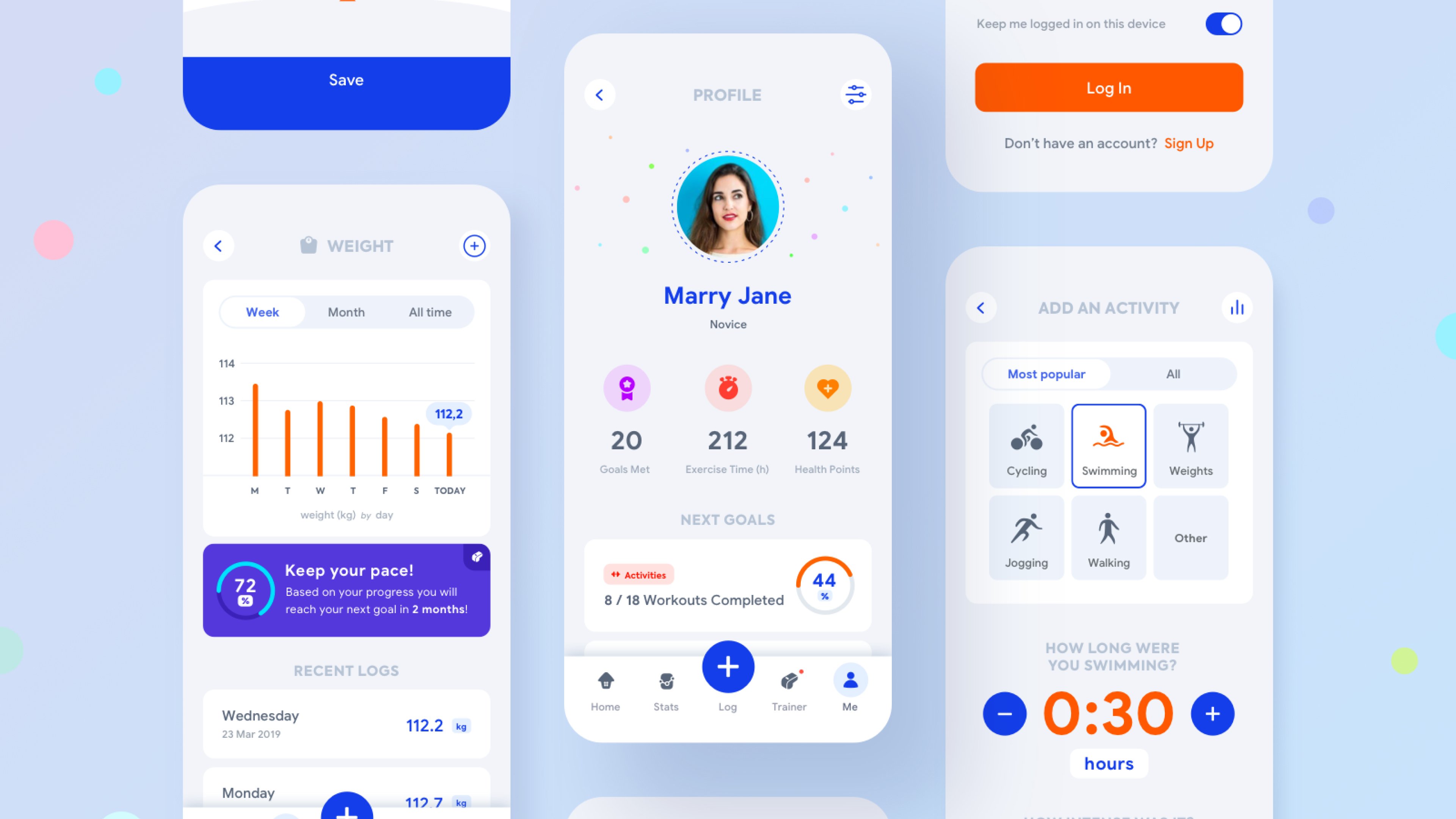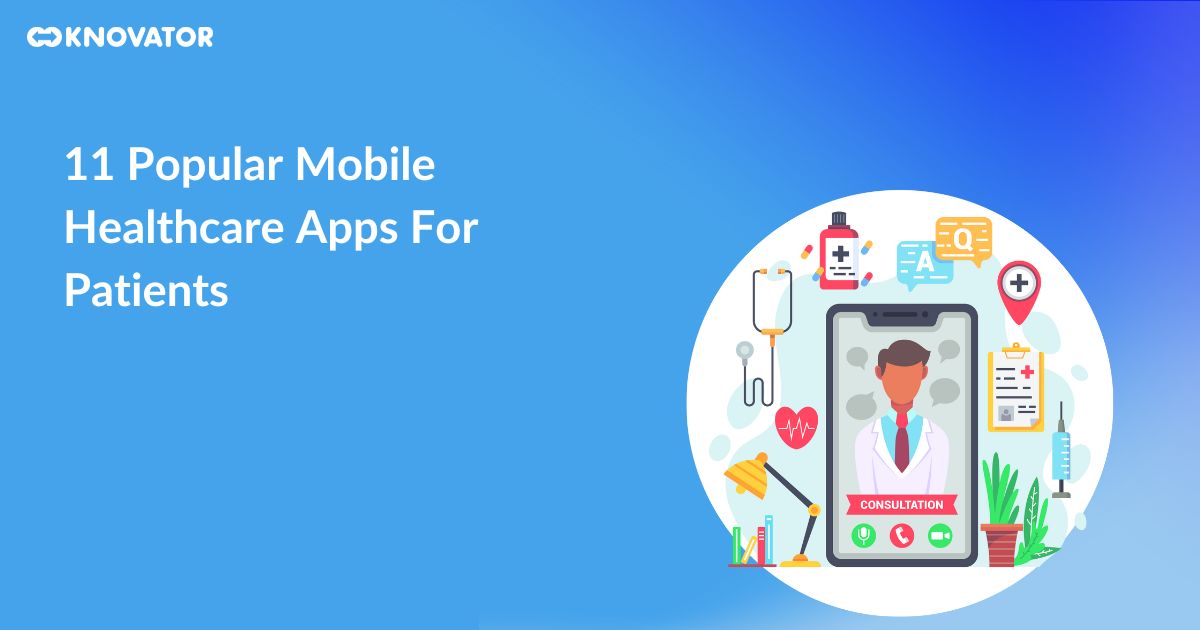Ideal Practices for Developing a Mobile App for Clinics That Fulfills Patient Requirements
Ideal Practices for Developing a Mobile App for Clinics That Fulfills Patient Requirements
Blog Article
The Future of Medical Care: Why Clinics Required a Mobile App Today
As the healthcare landscape remains to evolve, centers face installing stress to adjust to client assumptions for greater benefit and accessibility. The integration of mobile applications can act as an essential strategy for improving patient engagement and streamlining operations. By leveraging innovation to enhance interaction and provide vital solutions, clinics not only attend to present needs yet also place themselves for future success. Nevertheless, the implications of this shift expand past mere functional performance; they might redefine patient partnerships and care shipment in extensive ways. What might this change appearance like for both facilities and patients?
Altering Patient Assumptions
As the landscape of medical care develops, individual expectations are undergoing a significant change. Today's individuals are increasingly seeking benefit, accessibility, and individualized treatment.
Additionally, clients are ending up being a lot more educated and equipped, often investigating treatments and conditions on the internet before consultations. This enhanced recognition is coupled with a need for transparency in medical care procedures, including cost quotes and therapy choices. Therefore, suppliers are compelled to adapt by embracing digital devices that enhance the client experience.
The expectation for prompt and effective interaction has actually never been higher, with several patients considering responsiveness an important component of high quality care. mobile app for clinics. In this progressing landscape, health care companies have to identify these changing expectations and utilize mobile applications to promote a much more patient-centric approach, making certain that they not only fulfill however surpass the standards set by today's educated consumers
Enhancing Individual Interaction

Mobile applications assist in interaction between people and doctor, allowing real-time consultation organizing, pointers for drug adherence, and straight messaging features. These performances not only improve ease yet also develop a feeling of accountability among people. In addition, mobile apps can supply educational material tailored to private demands, helping people better recognize their conditions and treatment choices.
The integration of gamification elements within medical care apps can likewise encourage patients to participate in healthy and balanced behaviors, enhancing positive way of life modifications. By tracking development and satisfying accomplishments, individuals are most likely to stay devoted to their health goals. Eventually, boosting person involvement through mobile applications brings about enhanced health and wellness results, better client satisfaction, and a more collective medical care experience. Centers that prioritize this facet will likely see a considerable influence on the quality of treatment provided.
Simplifying Center Procedures
Improving clinic procedures is necessary for boosting process effectiveness and maximizing person treatment. The implementation of mobile applications can considerably decrease administrative burdens, enabling doctor to concentrate more on patient communications. By automating consultation scheduling, person check-ins, and payment processes, facilities can minimize wait times and improve total functional performance.
Mobile applications likewise promote real-time accessibility to patient records, allowing health care specialists to make informed decisions rapidly. This immediacy not just boosts the high quality of treatment however additionally decreases the possibility of mistakes connected with lost or obsoleted info. Leveraging mobile technology supports a more well organized strategy to handling client follow-ups and treatment plans, guaranteeing that no vital actions are forgotten.
This permits for prompt replenishment and aids avoid disturbances in client care due to stock shortages. By integrating these performances right into their daily procedures, facilities can develop a much more efficient and natural environment, eventually leading to improved patient end results and fulfillment.
Improving Interaction Channels
Efficient interaction is frequently cited as a foundation of high quality health care shipment. In today's fast-paced clinical atmosphere, mobile applications can dramatically enhance communication channels between clinics, individuals, and health care suppliers. By integrating mobile applications into their operations, centers can promote real-time communications, making certain that patients obtain prompt information concerning their consultations, examination outcomes, and treatment plans.
Mobile applications likewise empower clients to connect directly with their medical care groups with protected messaging features. This straight line of interaction promotes a sense of involvement and allows for instant explanation of concerns, which can lead to better adherence to therapy protocols. Moreover, push alerts can advise people of upcoming consultations or medicine schedules, decreasing no-show rates and enhancing general wellness end results.

Staying Competitive in Medical Care
In a swiftly progressing health care landscape, companies should prioritize innovation and flexibility to preserve an one-upmanship. The integration of mobile applications right into healthcare services is no more optional; it is essential for centers intending to improve individual engagement, simplify procedures, and improve general solution delivery.
As clients increasingly count on digital systems for health administration, facilities that stop working to adopt mobile modern technology risk falling back. A properly designed mobile application can provide features such as visit scheduling, telemedicine appointments, and access to clinical records, supplying individuals with convenience and fostering commitment.

Rivals are also investing in mobile services, so remaining ahead calls for continual renovation and staying educated about technological improvements. Facilities need to not only execute mobile applications but also involve in normal updates and improvements. Eventually, the successful integration of mobile modern technology will certainly identify forward-thinking healthcare organizations and established the criteria for patient-centric care in an electronic globe.
Final Thought
To conclude, the combination of mobile applications in clinics is important to resolve the advancing landscape of client assumptions. By improving client engagement, enhancing operations, and boosting interaction networks, facilities can considerably improve wellness outcomes. In addition, the fostering of mobile innovation positions facilities to remain competitive in a progressively electronic medical care atmosphere. Inevitably, the critical execution of mobile apps represents a vital step towards supplying easily accessible and personalized he said healthcare, thereby meeting the demands these days's equipped people.
Eventually, enhancing individual engagement via mobile applications leads to boosted health and wellness results, greater client complete satisfaction, and an extra joint health care experience.Mobile apps likewise facilitate real-time accessibility to discover this info here patient documents, enabling medical care specialists to make informed decisions rapidly. In today's busy medical setting, mobile applications can dramatically improve interaction networks in between clinics, individuals, and healthcare service providers.Mobile applications also equip people to communicate directly with their healthcare teams via protected messaging functions. Ultimately, the tactical application of mobile apps represents a crucial action towards delivering obtainable and personalized medical care, consequently satisfying the needs of today's equipped patients.
Report this page